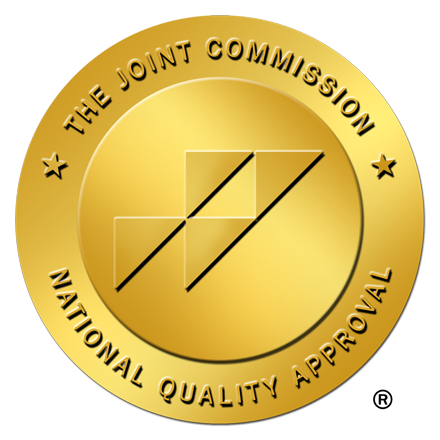Questions? Call for Help Now











At our residential mental health treatment center in Mission Viejo, we strive to deliver personalized treatment programs that are tailored to your unique needs and experiences. Your journey to mental wellness and recovery is not a cookie-cutter process, and we understand that. That’s why we offer a variety of treatment options to best address your individual struggles and goals.
If you or a loved one is experiencing anxiety, depression, bipolar disorder, trauma, or other mental health challenges, you can trust our expert team at Alter to provide compassionate care and support at every step. With round-the-clock monitoring, you or your loved ones can have the peace of mind knowing that you are always in safe hands.

The perfect setting for mental health treatment is essential. It resets the mind, calms the senses, and allows for introspection. Our residential mental health treatment facility is designed to offer that comfort for individuals seeking treatment.
Our beautiful location, within walking distance to parks, lakes and greenery, provides a peaceful and tranquil environment ideal for recovery. Our cozy interiors, six shared bedrooms, and a spacious backyard ensure you feel right at home while receiving the exceptional care you deserve.
Call Now for Program Availability
Contact our admissions team to learn about our programs and to check availability at our facilities, or submit your insurance to verify coverage.
At Alter, we provide outstanding mental health care through top-tier clinicians who utilize the latest research and innovative methods to deliver personalized, effective treatments.

Dr. Araz Tawfique, M.D.
Medical Director/Psychiatrist
Dr. Araz Tawfique, M.D. is an award-winning, Board Certified psychiatrist in La Jolla, CA with over ten years of experience working with people of diverse needs. He pursued his true passion for psychiatry and completed his psychiatric residency training at the University of Reno, Las Vegas. A San Diego native, he returned to Southern California to receive additional training in mental health, and start his private practice. His specialties are psychiatry and psychotherapy, which are techniques that facilitate a better understanding of thoughts, feelings, and motivations. His approach explores the interplay of biology, psychology, and sociology in shaping individuals and their relationships.
Dr. Tawfique’s experience includes delivering comprehensive addiction treatment at substance abuse centers in San Diego.

Medical Director / Pychiatrist

Niloufar Nekou, a Marriage and Family Therapist, specializes in a range of psychotherapy areas, including trauma, substance and alcohol abuse, and embracing cultural diversity. Trained in EMDR and skilled in Cognitive Behavioral Therapy and Dialectical Behavioral Therapy, she fosters a compassionate and non-judgmental therapeutic environment.
Niloufar received her Master’s degree in Marriage and Family Therapy from The Chicago School of Professional Psychology, and a Bachelor’s degree in Psychology from the University of Charleston. Niloufar’s therapeutic approach is to create a compassionate and non-judgmental space to address the difficulties that bring clients to therapy.

Chief Clinical Officer


Psychiatric-Mental Health Nurse Practitioner
Combining evidence-based treatment modalities with a holistic approach, Alter offers comprehensive treatment for mental health disorders. Our team works closely with each individual to create a personalized treatment plan to usher in a sustainable recovery.
The availability of our diverse treatment options highlights our commitment to personalized care.
We offer medication management, individual therapy, group therapy, family therapy and more. Additionally, our team also incorporates holistic therapies like yoga, mindfulness meditation, nutrition counseling, and fitness activities to promote overall wellness.
Clients typically stay for six weeks (30-45 days) at our residential facility, though we adjust the length of stay based on each individual’s progress and needs.
Engage in enriching group activities such as life skills training, trauma education, and medication education with fellow residents. We also organize frequent outings like whale watching, Disney trips, beach days, kayaking, and more that are curated to enhance social skills and introduce clients to new activities.
Residents follow a well-planned schedule that includes a range of therapies and activities. These activities are curated to promote healing, personal growth, and a sense of community.

Our doors are open to individuals dealing with mental health conditions such as
We can house a maximum of 12 residents, with 6 shared bedrooms. To ensure safety and support, there are always a minimum of 2 staff members present around the clock, conducting regular Q30-Q60 check-ins as needed.
During your residential treatment at Mission Viejo, residents follow a structured healing routine within the facility. While individual outings are not permitted, you will be able to go out during scheduled group excursions. Weekly visitation is allowed for loved ones. We also have a spacious backyard if you need some outdoor time.
Certainly. We offer the services of a private chef who can accommodate a range of dietary needs, from allergies to cultural preferences. Whether you require modified diets for medical reasons or honor specific food traditions, we prioritize meeting your food restrictions to ensure your well-being and comfort.
We value the feedback from our many clients and we are proud of these success stories. Knowing we have made a positive impact on the lives of these individuals and families is most important to us.
Call Now for Program Availability
Contact our admissions team to learn about our programs and to check availability at our facilities, or submit your insurance to verify coverage.
We accept most major insurance providers including the ones displayed here.
Submit your insurance to confirm coverage.










We accept most major insurance providers including the ones displayed here.
Submit your insurance to confirm coverage.




















Our facilities have been awarded prestigious recognition and certifications by adhering to rigorous guidelines and exceeding quality standards with consistent, safe & effective healthcare services.


We are on a mission to improve the lives of people with mental health conditions.
34270 Pacific Coast Hwy
3rd Floor
Dana Point, CA 92629
Questions? Call now to speak confidentially with an admissions counselor.





